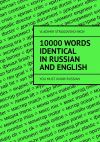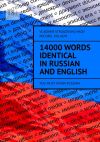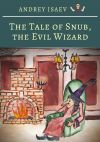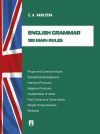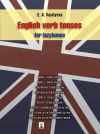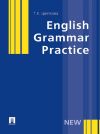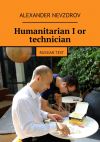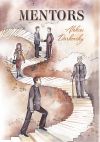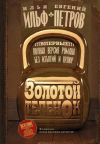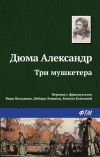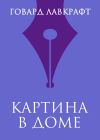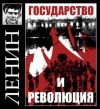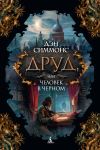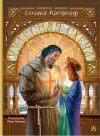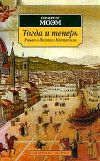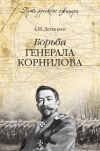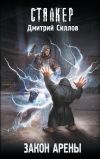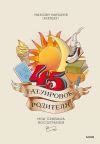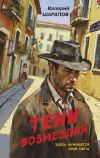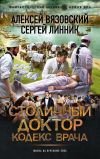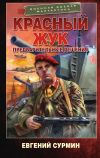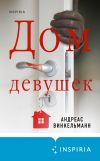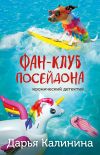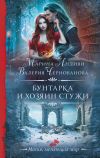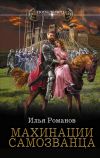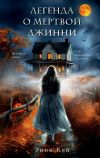Текст книги "Сборник упражнений по английскому языку. Часть 1"
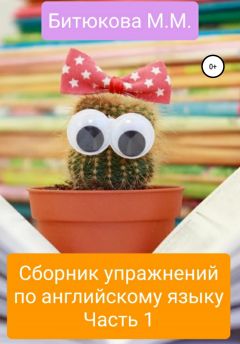
Автор книги: М. Битюкова
Жанр: Иностранные языки, Наука и Образование
сообщить о неприемлемом содержимом
Текущая страница: 1 (всего у книги 2 страниц) [доступный отрывок для чтения: 1 страниц]
Introduction
Part 1
1) The structure of the English sentence (word order) (Структура английского предложения)
Exercise 1. Put the following sentences into the right order (Поставьте слова в следующих предложениях в правильной последовательности, согласно структуре английского предложения):
a) я (I) вчера (yesterday) дома (at home) прочитал (read) интересную книгу (an interesting book);
b) мы с друзьями (my friends and I) посмотрели (watched) вчера (yesterday) смешной фильм (a funny film) в кинотеатре (in the cinema);
c) он (he) каждую неделю (every week) ездит (goes) за город (to the country) со своей семьей (with his family);
d) в магазине за углом (in the shop round the corner) она (she) купила (bought) новое пальто (a new coat);
e) фирма (the firm) в прошлый понедельник (last Monday) подарила (gave) Сэму (Sam) золотые часы (a golden watch);
f) он (he) только что показал (has just showed) мне (me) фотографию своей семьи (a photo of his family);
g) Барбара (Barbara) недавно (recently) сшила (has made) красивое платье (a beautiful dress) для своей дочери (for her daughter).
2) Singular and plural forms of the nouns (Формы единственного и множественного числа существительных)
Exercise 2. Look at the plurals below. Find them in the puzzle. (Посмотрите на формы множественного числа существительных. Найдите их в рамке ниже)
Toothbrushes – beaches – brushes – buses – classes – dishes – dresses – foxes – hairbrushes – matches – potatoes – tomatoes – watches

Exercise 3. Fill in the table using the words below according to their plural forms. (Заполните таблицу, используя слова ниже, в соответствии с образованием множественного числа у существительных.)

Pet, university, life, fireman, song, louse, cards, news, spectacles, class, tooth, pocket, son-in-law, story, postwoman, clothes, juice, information, money, forget-me-not, half, bus, eye, guy, knowledge, coca-cola, grown-up, ox, month, police, food, road, dish, person, family, scissors, hero, key, spoon, hair, tax, tomato, pajamas, air, passer-by, path.
Exercise 4. Make these words plural. Put them into the puzzle (across) to find out what Mike wants to be when he grows up. (Образуйте множественное число от следующих существительных и заполните кроссворд, чтобы узнать, кем хочет стать Майк, когда вырастет)
Foot – vegetable – child – man – tooth – potato – boy – party – bush

3) The verb to be (Глагол “быть”)
Exercise 5. a) Fill in the gaps with is or isn’t in the following conversation at the party. (Заполните пропуски подходящими формами глагола to be в следующем диалоге, происходящем на вечеринке)
Anna: Who (1) ____ he?
Jo: He’s Michael. He (2) ____ a writer.
Anna: Where (3) _____ he from?
Jo: Ireland.
Anna: (4) ____ he married?
Jo: No, he (5) _____. He (6) _____ single.
Anna: (7) ____ he nice?
Jo: Yes, he (8) ____. He (9) ____ lovely.
Anna: And who (10) _____ she?
Jo: She (11) _____ Jessica. She (12) _____ a dance teacher.
Anna: Where (13) ____ she from?
Jo: England.
Anna: (14) _____ she married?
Jo: Yes, she (15) _____. She (16) _____ married to George.
Anna: Oh. (17) ____ she nice?
Jo: No, she (18) ____ . She (19) ____ awful. She (20) ____ very unfriendly.
b) Fill in the gaps with am, ‘m not, are or aren’t in the following conversations. (Заполните пропуски подходящими формами глагола to be в следующих диалогах)
1) A: (1) _____ you from Spain?
B: No, we (2) ____ . We (3) _____ from Argentina.
2) A: (4) ____ you Tom?
B: Yes, I (5) ____ .
3) A: (6) ____ they English or American?
B: They (7) ____ English.
4) A: Where (8) _____ your children?
B: They (9) ____ in the shop.
5) A: (10) ____ you Portuguese?
B: No, I (11) ____. I (12) ____ Brazilian.
Exercise 6. Two tourists, Peter and Maria, are in a café. Put their conversation in the right order. (Два туриста, Питер и Мария, находятся в кафе. Расположите реплики их диалога в правильной последовательности)

4) Pronouns (Местоимения)
Exercise 7. Fill in the gaps using the correct pronoun. (Заполните пропуски в предложениях, используя соответствующие местоимения.)
a) replace nouns on the place of the subject to personal pronouns (замените существительные на месте подлежащего на местоимения).
1) Rostropovitch / He is а great musician of today.
2) Mozart & Bееthоvеn / ______ were composers of genius.
3) "Yesterday" / ______ is one of the most famous songs by The Beatles.
4) Montserrat Caballe / ______ is а great Spanish singer.
5) Rococo, Baroque and Gothic / ______ are only а few styles in the architecture of St Petersburg.
6) This cat / ______ is terribly nice.
7) This dog/ ______ was the family's favourite.
8) Woody Allen/ ______ is а very famous American film director.
b) fill in the gaps using the personal pronouns (вставьте местоимения вместо прочерков).
______ am а doctor. ______ have а wife. ______ is а scientist. ______ have two children: Mary and Bob. Bob is sixteen years old. ______ is two years older than Mary. ______ is fourteen. ______ have а computer. ______ is Bob and Mary's best friend.
c) complete the sentences with the suitable pronouns (закончите предложения,подставляя подходящие местоимения).
1. Marу is а student аt the Academy of Arts. Architecture is interesting for her .
2. We are musicians. Regular practice is important for ______ .
3. John & Jane are actors. Their theatre is home for ______ .
4. I am а student of English. English classes are quite expensive but very necessary for ______ .
5. He is lazy. Any work is difficult for ______ .
6. Tom is а very weak boy. The door of his flat is too heavy for ______ .
7. They were good at the last English lesson & they were pleased with ______.
8. Mr. Brown is the president of а company. He is proud of ______.
d) using the possessive pronouns fill in the gaps in the sentences (используя притяжательные местоимения, заполните пропуски в предложениях).
1) This is (Mary’s) her favourite novel.
2) Bill is (John’s) ______ brother.
3) Jane is (Mr. and Mrs. Carter's) ______ daughter.
4) Mr. Thomas is (Susan and my) ______ director.
5) There are а lot of books by great writers in (Mr. and Mrs. Green’s) ______ house.
6) (Ann’s) ______ mother is а talented singer.
7) This is (a dog’s ) ______ small house.
8) (The company’s) ______ office is situated in the centre of the town.
9) (Bob’s) ______ sister's hobby is photography.
5) Numbers (Числительные)
Exercise 8. Complete the gaps by filling in the suitable numbers. (Заполните пропуски подходящими числительными)
1. One – two – three – _________ – five – _________ – seven – __________ – nine – ________ – eleven – _________ – thirteen – __________ – fifteen – __________ – seventeen – ___________ – nineteen – ___________ – twenty-one …
2. One – two – three – four – __________ – six – ____________ – eight – ____________ – ten – ___________ – twelve – ____________ – fourteen – ____________ – sixteen – ____________ – eighteen – ____________ – twenty – ____________ – twenty-two …
3. __________ – three – five – ___________ – nine – eleven – ___________ – ___________ – seventeen – __________ – twenty-one ….
4. Two – four – ___________ – eight – ten – ___________ – ___________ – sixteen – ___________ – twenty – __________ – ___________ ….
5. Ten – twenty – thirty – ___________ – fifty – ___________ – seventy – ___________ – ninety – __________ …
6. __________ – twenty – __________ – forty – _________ – sixty – _________ – eighty – __________ – one hundred …
Exercise 9. Write the following numbers in letters.(Напишите следующие числительные словами)

Part 2
Additional Practice
Exercise 1. Make up expressions with the following words using articles a/an (Составьте со следующими словами словосочетания, используя подходящий артикль).

Exercise 2. Make up sentences (Составьте предложения).
1. in the wardrobe, Mike, clothes, a lot of, has.
2. Mary, sons, has, two.
3. good, secretary, has, computer, John’s, a.
4. brother, doctor, a, is, Ann’s, famous.
5. every, in, work, day, photographers, this, park.
6. education, good, for, important, Jane, very, is.
7. was, the, best, Maria, pupil, at school.
8. different, Jane, subjects, and, have, Paul.
Module 1
I. Vocabulary section
Active vocabulary

Vocabulary Revision and Expansion Exercises
Exercise 1. Write the questions from the interview using the prompts. Then match the questions with the answers on the right.

Exercise 2. Find in the box below and write down the Russian equivalents for the following English words and word combinations.

Exercise 3.Translate the following sentences into English using some of the words from the box (not all the words are suitable).

II. Grammar section
To be: positive, negative, questions and answers.
Exercise 1.Write the suitable form of the verb to be (am, is, are) to the following nouns.

Exercise 2. Match the phrase on the left with its Russian equivalent on the right.

Exercise 3. Translate the following conversations into English using vocabulary and grammar of the module and then act them out.
1) – Здравствуйте! Меня зовут Анна. А как зовут вас?
– Я Томуко. Рад с вами познакомится.
– И я. Откуда вы, Томуко?
– Я из Японии. А вы?
– Я из Бразилии.
2) – Как его зовут?
– Его зовут Антонио.
– Откуда он?
– Он из Аргентины.
– Кто он по профессии?
– Он музыкант.
3) – Вы женаты?
– Да, я женат.
– Сколько вам лет?
– Мне 32 года.
4) – Как у вас дела?
– Все в порядке, спасибо.
– Вы здесь в отпуске?
– Нет, я здесь по делам.
5) – Вы художник?
– Нет, я офицер полиции.
– Вы из Венгрии?
– Нет, я из Польши.
6) – Какой у вас номер телефона?
– 754-23-69.
– Это московский номер?
– Да, московский. Позвоните мне.
7) – Как вас зовут?
– Фернандо Альенда.
– Произнесите по буквам.
– Ф-е-р-н-а-н-д-о А-л-ь-е-н-д-а.
– Спасибо.
– Не за что.
Revision
Exercise 1. Change the following nouns to the plural.

Exercise 2. Fill in the personal pronouns instead of the following nouns.

Tongue-twisters. To read and remember
1. Six selfish shellfish.
2. Little girl with a little curl.
3. Six short slow shepherds.
4. Unique New York.
Module 2
I. Vocabulary section
Active vocabulary


Vocabulary Revision and Expansion Exercises
Exercise 1. Use the clues to help you find words from Module 2 in the square below.

Exercise 2. Answer the questions using your active vocabulary.
1. What have you got on the desk?
2. What have you got in your bag?
3. Have you got a photo album? How many photos have you got there?
4. Have you got an English dictionary? Where is it?
5. Have you got any sweets with you? Do you like them?
6. Have you got a mobile phone? What is the model of your mobile phone?
7. What is your favourite thing?
8. How many relatives have you got? Who are they?
9. Have you got cousins? What are their names?
10. Have you got an aunt or an uncle? What are their jobs?
Exercise 2. Choose 10 words from Modules 1 and 2 which are the most difficult for you to remember. Make up a crossword with them.
II. Grammar section
This/that, these/those; have got/has got.
Exercise 1. Choose the correct variant of translation of the following sentences.


Exercise 2. Make up questions about the people from the table and the things they have got and then answer them.

Exercise 3. A Game. Divide into two groups. The first student says an object. Groups in turn add one object each time. If they fail to remember the objects mentioned besides adding a new one, they lose 1 point. The group with the most points is the winner.
Group A S1: I’ve got an apple.
Group B S1: I’ve got an apple and an orange.
Group A S2: I’ve got an apple, an orange and an egg.
Group B S2: I’ve got an apple, an orange, an egg and a book.
Group A S3: I’ve got an apple, an orange, a book and a pen.
Stop. You’ve missed “an egg”. Group A loses 1 point.
Possessive’s.
Exercise 4. Match Russian phrases on the left with the English ones on the right.

Exercise 5. Translate the following phrases into Russian. Be attentive with possessives.
Sister’s son, brother’s friends, father’s brother, aunt’s grandchildren, cousin’s watch, parents’ cat, her uncle’s computer, their granddaughter’s family, wife’s nephew, nephew’s wife.
Exercise 6. Choose the correct expression from the box and match it with the Russian one.

Exercise 7. a) Combine together the following words to make phrases and then use the possessive pronouns as in the example.
Example: Peter – cat. Peter’s cat. His cat.
The girls – sweets; Simon – personal stereo; the boys – bicycles; Mr. Brown – phone card; Rose – camera; the horse – tail; the dog – food; the children – shoes; mother – hat; men – computers; grandparents – pet; boyfriends – watches; nephew – postcard; granddaughter – diary.
b) Combine together the following words to make phrases. Make up as many phrases au you can.
Example: son – pocket – jacket – Peter. Peter’s son; Peter’s pocket; Peter’s jacket; a pocket of the jacket; a pocket of Peter’s jacket; a pocket of son’s jacket, etc.

Exercise 8. Translate the following sentences into English using vocabulary and grammar of the module.
1. Эти ключи не мои. – А чьи они? 2. У меня много родственников: три двоюродных сестры, четыре племянника, одна племянница и две тети. 3. Это мое удостоверение личности. 4. Это мои друзья. У них есть фотокамера и удобный автомобиль. 5. Что это? – Это бутылка с водой. 6. Это ваши конфеты? 7. Та машина очень удобная. 8. Как это по-французски? – Не знаю. 9. У вас есть английский словарь? 10. У меня новый компьютер. 11. У нее нет стерео системы. 12. Это мои собаки. Они дружелюбные. 13. Она двоюродная сестра моей тети. 14. Они родственники Антонио и Лауры. 15. У него ничего нет.
Exercise 6. Topics. Write about:
a) your favourite thing(s) – 15 sentences;
b) your family and relatives – 15 sentences.
Revision
Exercise 1. Complete the sentences using possessive pronouns as in the example.

Exercise 2. Match the numerals on the left with their equivalents on the right.

Exercise 3. Do the following sums.

Tongue-twisters. To read and remember
1. Here’s a body – there’s a bed!
There’s a pillow – here’s a head!
There’s a curtain – here’s a light!
There’s a puff – and so good night!
2. Which is this switch?
Which switch is which?
Module 3
I. Vocabulary section
Active vocabulary

Vocabulary Revision and Expansion Exercises
Exercise 1. Put the words below into the correct column and complete the table.

House, car, beautiful, police officer, favourite, moped, bicycle, flat, brilliant, city, waiter, comfortable, artist, musician, country, sportsman, bus, motorbike.
Exercise 2. Match Russian equivalents on the left with English ones on the right.

Exercise 3. Write down English equivalents for the following Russian words.
Жить в квартире, работать днем, идти домой на обед, ужинать вечером, заканчивать школу, изучать правоведение, в школе, на завтрак, оставаться открытым, закрываться около десяти вечера, в обеденное время, перекусить, начинать работать.
II. Grammar section
Present Simple: positive, negative, questions (I, you, we, they).
Exercise 1. Put the words in the correct order to make positive sentences.

Exercise 2. Write down questions and negative sentences to the positive ones.

Exercise 3. Complete the following sentences with am/is/are or do.

Exercise 4. What do you do every day? Make up five sentences.
Exercise 5. Translate from Russian into English, using grammar and vocabulary of the module.
1. Мой двоюродный брат и племянник изучают экономику в университете. 2. Мои родственники не любят поп-музыку. 3. Его жена и сестра пьют горячий шоколад по вечерам. 4. Официанты этого ресторана заканчивают работать без двадцати десять. 5. Я живу вместе с другом и его родителями. 6. Вы пьете кофе по утрам? 7. Они не изучают французский. Они изучают немецкий. 8. Они начинают работать в девять или в десять утра? 9. Большинство родителей не оставляют своих детей одних дома. 10. У вас есть чем перекусить? – Нет, я обычно хожу домой в обеденное время.
Exercise 6. a) Write down 5 questions on the topic “Life in Britain and in Russia”.
b) Write down 15 sentences on the topic “Life in Britain and in Russia”.
Revision
Exercise 1. Combine together the following words to make phrases.
Grandson and granddaughter – dictionary; niece – snack; uncle – meal; the girls – photos; the policeman – dog; aunt – chocolate; parents – house; mother-in-law – garden; person – surname.
Exercise 2. Fill in the table by making the following nouns singular or plural.

Tongue-twisters. To read and remember
1. One, two, buckle my shoe.
Three, four, shut the door.
Five, six, pick up sticks.
Seven, eight, lay them straight.
Nine, ten, a good fat hen.
2. Early to bed and early to rise
Makes a man healthy, wealthy and wise.
Module 4
I. Vocabulary section
Active vocabulary

Vocabulary Revision and Expansion Exercises
Exercise 1. Write down English equivalents from the text on page 33 (ex. 2). Then make up sentences with these phrases and write them down.
Волнующий (захватывающий), как дома, квартира, кино индустрия, разговаривать с кем-либо, образ жизни, двадцатичетырехлетний, выглядеть так хорошо, на севере Англии.
Exercise 2. Answer the questions using your active vocabulary.
1. Do you play computer games? Why/Why not? When do you do it?
2. Do you swim? Where do you usually swim? How well do you swim?
3. Who does housework in your family? Who goes shopping?
4. Name any exciting place you know. Why do you think it’s exciting?
5. What is “a way of life”? What is your way of life?
6 What do you listen to on the radio?
7. What do you watch on TV? When do you usually do it?
8. How often do you read newspapers and magazines? What newspapers and magazines do you like?
9. Do you write letters? Who do you write letters to?
10. How many times a month do you go to the cinema?
Exercise 3. Use the words in the box and the phrases below and make up as many sentences as possible. Don’t change the form of the verbs.

II. Grammar section
Present Simple: positive, negative, questions (he, she, it).
Exercise 1. Put the verbs below into the correct column.

Watch, come, do, drink, listen, visit, go, swim, run, write, hate, stay, like, read, open, play, speak, think, close, live, study, leave, start, finish, fly.
Exercise 2. Correct the following statements (make them negative). Be attentive one of them has the verb “to be”.

Exercise 3. Make up questions of the following words, answer them in the negative and explain why.
1. Get up/you/at nine o’clock?
2. John/live/ in Africa/now?
3. She/visit/every day/ her grandparents?
4. Your parents/work/at school?
5. Your sister/watch/ TV programmes/all?
6. You/to the cinema/every Sunday/go?
7. You/ ice-cream/prefer/or fruits?
8. You/spend/in town/weekends?
9. Your boyfriend/at the University/meet/often/you?
10. You/live/in Nevsky Prospect?
11. Your mother/to make dresses/like?
12. Your friends/to disco dances/every evening/go?
Exercise 4. Write down questions with do and does.

Exercise 5. Write down questions for these answers.
1. No, I don’t. I go by car.
2. Yes, I do.
3. Usually at eight in the evening.
4. We go there very often, about twice a week.
5. No, he doesn’t. He walks to school.
6. No, we don’t. We go by train.
7. No, I’m not. I’m a teacher.
8. She usually gets up at seven in the morning.
9. Because I want to learn more about birds and animals.
10. They usually go by bus or by tram.
11. No, they don’t. They live in a flat.
12. I don’t know. May be it’s hers.
Like, love and hate + …ing.
Exercise 6. Add –ing to the following verbs and put them in the correct list.
Go, read, run, write, stay, open, close, play, fly, walk, do, swim, cook, listen, watch, live, study, start, leave, drink, eat, finish.

Exercise 7. Fill in the gaps in the following sentences. Then do the Word grid. Read the question in the marked column and answer it.
He likes … housework.
They like … shopping.
I hate … by planes.
Grandmother likes … big meals.
I love … English!
He likes … the guitar.
She likes … letters to her relatives.
They love … in the forest.
We … don’t like … pasta.
I hate … my work late at night.
I love … in Russia.
My little niece likes opening and … the door.
He likes … in the sea.
We like buying things. We like … !

Exercise 8. Choose the words in columns, make up sentences and write them down.

Exercise 9. Mo is talking to his friend Pad on the telephone. Fill in the gaps.

Exercise 10. Translate the following into English.
1. Что ты думаешь о самолетах? – О, я очень люблю летать. 2. Она любит делать работу по дому? 3. Я часто играю в футбол по субботам, а он любит смотреть футбол по телевизору. 4. Вы всегда слушаете эту музыку? 5. Она ненавидит плавать в реке. 6. Он навещает бабушку и дедушку не очень часто. 7. Мы не пишем письма друзьям. 8. Она не любит играть в компьютерные игры. 9. Ты любишь готовить? Какая твоя любимая еда? 10. Ей нравится учиться в университете. – Что она изучает? 11. Они живут на юге России. 12. Наша квартира находится в самой прекрасной части города. 13. Вы всегда так хорошо выглядите? 14. Мой семнадцатилетний двоюродный брат смотрит видео фильмы каждый день. Его маме не нравится его образ жизни. 15. Что она любит пить по утрам? – Она ненавидит пить кофе и поэтому пьет зеленый чай.
Exercise 11. a) Write down 15 sentences on the topic “My friend and his interests (his likes and dislikes)”.
b) Write down 15 sentences on the topic “A foreigner in Russia”.
Внимание! Это не конец книги.
Если начало книги вам понравилось, то полную версию можно приобрести у нашего партнёра - распространителя легального контента. Поддержите автора!Правообладателям!
Данное произведение размещено по согласованию с ООО "ЛитРес" (20% исходного текста). Если размещение книги нарушает чьи-либо права, то сообщите об этом.Читателям!
Оплатили, но не знаете что делать дальше?